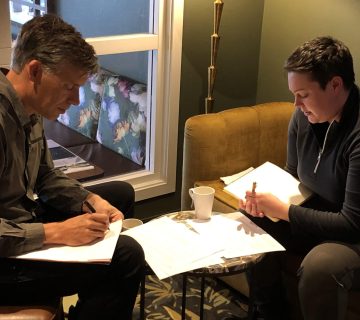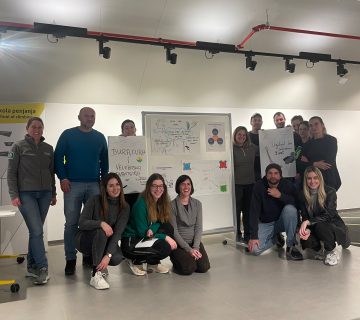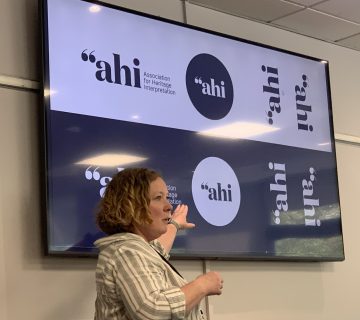In the first half of 2019, MIK was involved in disseminating the competences acquired during two of Interpret Europe’s courses: Certified Interpretive Writer (CIW) and Certified Interpretive Guide (CIG). Training was offered to employees in the culture and tourism sector. The employees of MIK conducted a complete five-day Certified Interpretive Writer (CIW) course in Poland and a two-day training session for employees of the Małopolska region and open-air museums, based on the methodology of the Certified Interpretive Guide (CIG) course.
How to write interpretive texts about heritage? – the first CIW course for Poland
MIK was really pleased to run the first Certified Interpretive Writer (CIW) course in Poland. The Polish pilot version of the course was developed as part of cooperation with the Interpret Europe network and the Visegrad Fund.
The course invited people who write texts on the phenomena of heritage (objects, places, characters), including the creation of descriptions of exhibits in museums, galleries, parks and other institutions providing cultural heritage in its broad sense. The programme was based on the methodology for interpreting heritage developed by Interpret Europe. The competence developed by the participants was the ability to write interpretive texts, i.e. those that engage the reader’s attention, when the possibilities of acquiring long and complex content are limited. The course offered the opportunity to acquire or structure the skill of writing texts with strong messages and to exchange professional experiences. Participants were delighted to enter the network of hundreds of professionals involved in heritage interpretation for many years.
Interpretive guiding for Poland
In March, MIK also organised a two-day training in interpretive guiding, prepared especially for people working in the open-air museums of the Małopolska region. Participants learned about selected tools and techniques in the field of heritage interpretation and practiced their use. An additional value of the course was the fact that the training was carried out at the Skansen (open air museum) in Wygiełzow (near Krakow). Thanks to this location, it was possible to use phenomena related to issues of the Western Krakowiaks ethnic group (attire, architecture, handicrafts, everyday household life, local art) for training purposes. The planned effect of the training, which was based on the methodology developed by Interpret Europe, was the introduction of participants to independently develop Interpretive Talk tales, as well as encouraging participants to develop stories in their museums in the form of interpretive walks.
Sebastian Wacięga works for the Małopolska Institute of Culture (MIK) in Krakow, Poland, where he is a facilitator of participatory strategic planning and heritage interpretation. He is co-author of the book, A local museum in a global world, and training games inspired by history, Peasant Business School and Oil City – Galician Black Gold Rush, published by MIK. He can be contacted at: waciega@mik.krakow.




